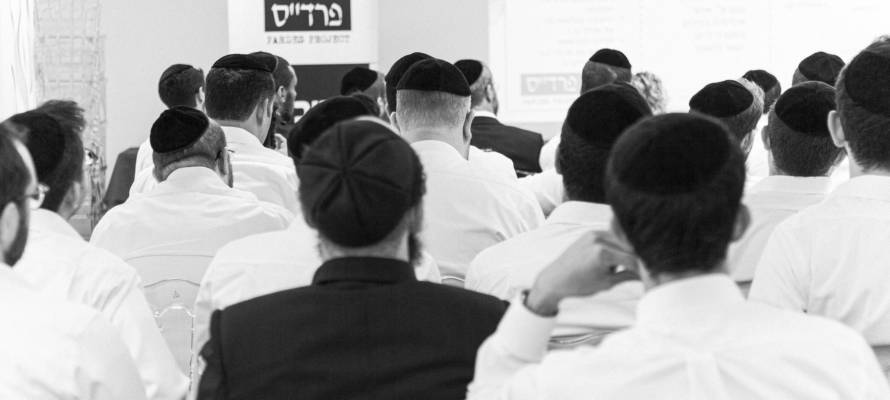Haredim are signing up to work for the Mossad, the Shin Bet (Israel Security Agency) and the police cyber units.
The times they are a changin’ – and more of Israel’s ultra-Orthodox community are not only joining the high tech world, but their best and brightest are also making the pro-active decision to serve and protect their country – although not necessarily by wearing a green IDF uniform.
The Jerusalem Post has revealed that more and more members of haredi society are being recruited by Israel’s top security agencies, including the legendary Mossad spy agency, the Shin Bet national security agency (known also as the Shabak or Israel Security Agency), and the top cyber crime units of Israel’s national police force.
In the past few years, some of the brightest and most talented ultra-Orthodox men, ranging in age from 24 to 34, are joining the ranks of the security establishment, serving as analysts and cyber sleuths.
The Post got security clearance to interview several of them, who can only be identified as “G” from the Mossad, “Y” from the Shin Bet, and police special agents Yisrael and Yoni. Only their wives are allowed to know who they work for, and the rest of their families have no clue what their real day jobs are.
The common factor in their recruitment is Rabbi Moshe Kahan, founder of the Pardes Project and head of its Beit Hamidrash (‘House of Study’ program, referring to Torah and Talmud learning).
Kahan, a graduate of the leading ultra-Orthodox Tifrah and Mir yeshivas in Jerusalem, is also a lecturer on Arabic and the Koran and among the staff of Ben-Gurion University’s department of Semitic languages.
The Pardes Project gives haredi youth an education track to pursue secular studies in a haredi framework, while maintaining an ultra-Orthodox environment. [Note: It is not connected in any way to the Pardes Institute of Jewish Studies in Jerusalem.]
The screening process is described as “obscenely competitive,” with each prospective candidate taking pre-academic preparatory courses in the fields of computer science, geopolitics and international relations before applying for jobs in the security establishment.
Mossad director Yossi Cohen said the spy agency started recruiting ultra-orthodox candidates in 2017 in partnership with Pardes. “The intention is to integrate haredim in all aspects of the the organization’s operations,” Cohen said.
“Two years ago, I felt something missing, I felt I needed something more,” Shin Bet agent Y told the Post. “I happened to see an advertisement on the Internet. I had tried something else in the working world, but I wanted to do something good for the world, not just make money.”
The studying he had to do through Pardes to prepare for the Shin Bet was “very intensive. I didn’t know any English or math. I learned from 9 a.m. until midnight.” However, he said, his Talmudic analytic studies have helped him arrive at some unique perspectives.
“I see a strong will and commitment for all people to keep their religious lifestyle standards. There are no problems. A few years ago they had already brought a rabbi into the organization for asking Jewish law questions,” said Mossad agent G.
Both Y and G said they have not yet had to work on the sabbath, but if the need arose, they would do so. “I have not yet had to work on Shabbat, but if state security is at stake, we can figure out how to act,” G said.
Furthermore, they feel respected at work.
“It happens every day… I sat in a room with a woman from Tel Aviv…who did not know the haredi world,” explained G.
“We debated questions about the future of the country: conversion, public transportation on Shabbat and other issues. I gave a different perspective. I explained the importance of the state remaining Jewish. I did not understand as much where she was coming from. At the end of the discussion, both sides knew more. I understood more of her ideas,” and vice versa, said the religious Mossad analyst.
Y and G prefer to remain modest and don’t see themselves as “representatives” of their communities, but “their comments made it clear they indeed feel the need to act as ambassadors to help their secular coworkers bridge into understanding their world,” the Post noted.
(United with Israel).
